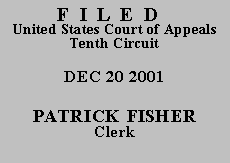

| UNITED STATES OF AMERICA, |
|
| v. | |
| JORGE ESPARZA VELASCO, |
Before HENRY, BRISCOE, and MURPHY,
Circuit Judges.
After examining the briefs and appellate record, this panel has determined
unanimously that oral argument would not materially assist the determination of
this appeal. See Fed. R. App. P. 34(a)(2). The case is, therefore, ordered
submitted without oral argument.
Jorge Esparza Velasco pleaded guilty to count one of a multi-count indictment, distribution of methamphetamine, in violation of 21 U.S.C. § 841(a)(1). Mr. Velasco waived the right to appeal his sentence so long as it fell within the statutory range. At the plea hearing, Mr. Velasco testified that he knowingly and willingly distributed approximately two ounces of methamphetamine. This quantity of drugs gave rise to a maximum sentencing range of 5 to 40 years' imprisonment under § 841(b)(1)(B)(viii). The district court sentenced Mr. Velasco to a term of 188 months (15 years, 8 months). For the reasons stated below, we affirm.
On appeal, counsel for defendant has filed a brief pursuant to Anders v. California, 386 U.S. 738 (1967), indicating counsel's belief that the record contains no meritorious issues for appeal. Defense counsel has also filed a motion requesting leave to withdraw as counsel, stating his belief that the issues raised on appeal are frivolous. As required, a copy of counsel's Anders brief and motion to withdraw were provided to Mr. Velasco, see id. at 744, and he filed a pro se brief, contending, without further discussion, that the sentence imposed exceeded the authorized statutory maximum.
Pursuant to our duty under Anders, we have conducted an independent review of defendant's sentence and agree that the appeal is frivolous. See id. The United States correctly argues that defendant waived his statutory right to appeal by knowingly and voluntarily waiving that right in his plea agreement. The plea agreement provides in relevant part that defendant waives any right to appeal so long as the sentence imposed is within or below the applicable guideline range. Mr. Velasco's waiver of his right to appeal does not apply to appeals or challenges based on changes in the law reflected in this Circuit or Supreme Court cases decided after the date of the plea agreement which are held by this Circuit or the Supreme Court to have retroactive effect.
[A]greements waiving the right to appeal are subject to certain exceptions, including where the agreement was involuntary or unknowing, where the court relied on an impermissible factor such as race, or where the agreement is otherwise unlawful. In addition, a waiver may not be used to preclude appellate review of a sentence that exceeds the statutory maximum or to deny review of a claim that the agreement was entered into with ineffective assistance of counsel.
United States v. Cockerham, 237 F.3d 1179, 1182 (10th Cir. 2001) (internal quotation marks and citations omitted).
Our review of the record reveals that defendant entered into the plea agreement waiving his appellate rights knowingly and voluntarily, and, indeed, defendant does not claim that he did not know the terms of his plea agreement or that his plea was involuntary. The sentence imposed was within the applicable guideline range, and the district court did not exceed the statutory maximum sentence. Further, none of the issues raised by defendant are based on changes
in the law made retroactive by this court or the Supreme Court after the date of the plea agreement.
Accordingly, the appeal waiver is valid and this appeal falls within its plain language. Therefore, we GRANT counsel's request to withdraw and DISMISS the appeal.
Entered for the Court,
Robert H. Henry
Circuit Judge
*. This order and judgment is not binding precedent, except under the doctrines of law of the case, res judicata, and collateral estoppel. The court generally disfavors the citation of orders and judgments; nevertheless, an order and judgment may be cited under the terms and conditions of 10th Cir. R. 36.3.